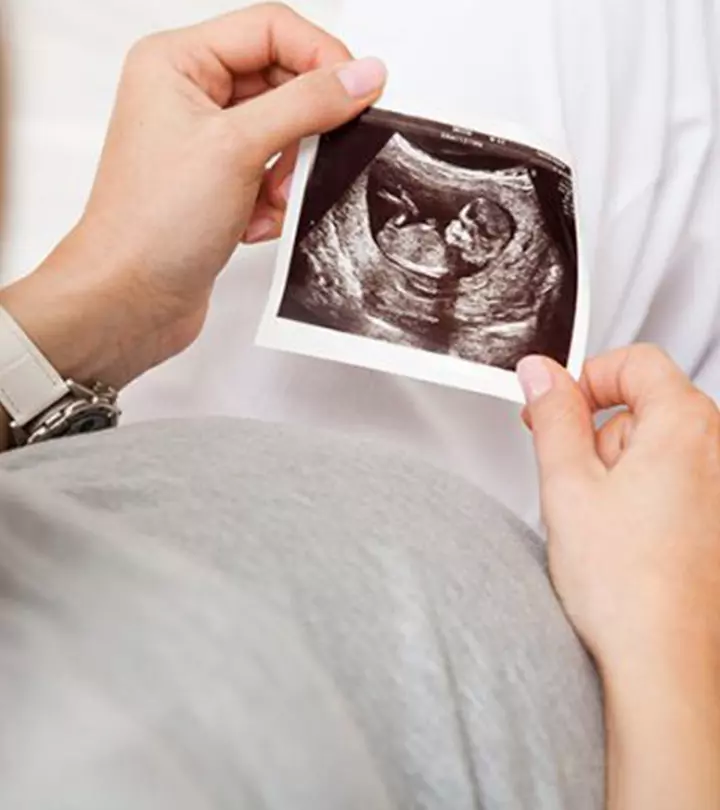

Image: ShutterStock
A recent BBC report stated that women who eat healthily during pregnancy may lower the risk of their baby developing a heart problem.

In the UK alone, congenital heart disease is one of the most common types of birth defects with an incidence of up to nine in every 1,000 babies born. About one percent of newborn babies in the United States are born with congenital heart diseases.
While mild defects like holes in the heart, improve on their own without causing further problems and hence don’t need treatment. But other cases may be more serious. Some might even lead to further problems as the child grows through the years.
The British Heart Foundation said that some heart conditions occur due to chromosomal or genetic defects. In most cases, something goes wrong in the early developmental phase of the fetus. However, the BHF also says that it is not clear as to why the baby’s heart has not developed normally.
A study published in Archives of Diseases in Childhood Fetal & Neonatal Edition was carried out on 19,000 American women who were asked about their diet in the year of pregnancy. Lot of fresh fish, fruits, vegetables and nuts were the determinants of a healthy diet. Supplements were prescribed for women trying to conceive and to those who were already pregnant. Folic acid was also recommended as it reduces the risk of other birth defects like spina bifida. Vitamin D intake during pregnancy helps in the formation of healthy bones and teeth.
The study showed that half of the women had babies with heart problems, while rest of the half did not.
These women were quizzed on the quantities and quality of their diet before they conceived between the period of 1997 to 2009.
The diet quality was measured by two scoring systems – the Mediterranean Diet Score and the Diet Quality Index for Pregnancy (DQI-P). Mediterranean Diet Score system was used to study how the expectant mother’s diet was associated with lower rates of cardiovascular disease and cancer. The DQI-P was used to measure eight components in the diet of a mother-to-be that comprised fruits, vegetables, grains, folate, calcium and iron and calories obtained from fat.
Those mothers who met with eight category component requirement of DQI-P scored in the top quartile (top 25%) in terms of the dietary quality. These women were at a lower risk delivering a baby with a congenital heart defect when compared to those making the 25 percent in the lower quartile who smoked during pregnancy.
It was also observed that a healthy diet prior to or during pregnancy brings down the risk of Tetralogy of Fallot, a condition that involves very low levels of oxygen (almost by 37 percent) in the blood and the atrial septal defects that divide the upper heart chamber by 23 percent because of the holes in the wall of the septum.
It has been found that pregnant women must consume 200-300 calories more nutrition from rich foods like whole grain products, vegetables, fruits, low-fat dairy and lean meat. As per the American Pregnancy Association, mothers should consume at least 70 mg of vitamin C on a daily basis. The rich source for Vitamin C are oranges, grapefruit, kiwi, tomatoes, and broccoli. Whole grains are rich in fiber, energy and carbs with six to eleven servings of grains in a day for the expectant mother.
Senior dietician, Victoria Taylor at the BHF says, “This is an interesting study which highlights the importance of diet right from the start of life. A healthy diet before, during and after pregnancy can have benefits for both mother and child and, as seen here, the whole diet should be taken into consideration, rather than solely focusing on individual nutrients. Eating well isn’t a guaranteed way to avoid congenital heart defects, but this will be another factor that will motivate women planning a pregnancy to make healthy choices.”
Community Experiences
Join the conversation and become a part of our nurturing community! Share your stories, experiences, and insights to connect with fellow parents.












